Dedicated to the memory of Don MacDonald.
Some names in this blog post have been changed.
During September and October, we spent four weeks in a rustic townhouse in Gaucin, a whitewashed village and former Moorish stronghold nestled high in the mountains of Andalucia in southern Spain. We had the good fortune to spend some of this time with our friends Nerys and Fraser, Cathy and Brewster and Donna and Craig.
Two views of Gaucin
Every morning, I would climb the stone stairs to the roof terrace to look out on the vista that patiently awaited me. To the west, the magnificent twin peaks of Reales (the king and queen) would wear the sun like a crown while in the east El Hacho shone like a golden pyramid. On the horizon, the Rif mountains of Morocco would poke their flat wide heads through the ocean mist while the Rock of Gibraltar stands tall over the Spanish coastline. Against this spectacular backdrop, I would roll out my yoga mat and meditate to the rhythm of the countryside slowly coming to life backed by a farmyard orchestra soundtrack of crowing roosters, barking dogs and braying donkeys. I was never quite sure whether my subsequent state of relaxation was due to my yoga technique or the pungent aromas emanating from El Dopo, our neighbour’s two metre tall marijuana plant…
View of Reales from the terrace (evening)
View of El Hacho from the terrace (morning)
View of Gibraltar from the terrace
Sunset from the terrace
This part of Spain has been hit very hard by the GFC. A short drive to the coast reveals row upon row of half-built apartments and townhouses while many of those that have been completed are architecturally weak, unsympathetic to their surroundings and most often empty. The 40km stretch of Costa del Sol from Marbella to Sabinillas looks like an unfinished Gold Coast, one behemoth apartment complex or characterless hotel after another surrounded by empty lots and punctuated by advertising hoardings, golf shops, strip clubs and supermarkets. As is so often the case, the development boom came first long before any consideration of urban planning or social amenity. Given the frenzy of development activity that occurred here only a few years ago, the lack of construction activity is startling: there are no cranes, hardly any building sites and, most significantly of all, there are very few people working. The unemployment rate in Andalucia is 31% rising to 54% amongst the under 25. Given these economic challenges, it is not difficult to understand why the wealthier regions of Basque and Catalonia are seeking to excise themselves from Spain and conversely why Madrid is so intent on denying them their independence.
The overdevelopment that characterises much of the Costa del Sol is largely absent in the mountains but there are more insidious forces of change at play in places like Gaucin. The population swells with tourists in the summer and approximately 10% of the permanent residents are expats, mainly from Britain. Our neighbour Pilar has lived in the same house for 78 years. She described to me what the village was like before the foreigners arrived. It was quieter then, there were fewer bars and restaurants and there was no electricity or running water. It is still quiet now (es muy tranquilo as the locals like to boast) and Gaucin for the most part feels like a sleepy, rural village where everyone goes to church on Sunday, the policia knows the whole town by name and the local melon farmer (the ‘melon man’) sells his wares from the back of a truck. Yet there is a disturbing undercurrent here that every now and then rises to an uncomfortable pitch before dropping back down again into the background hum. It is a tension that I have felt already on this trip in England and previously in Australia, namely the inevitable conflict that arises when bourgeois urban values are superimposed upon a rural working class setting. It occurs, for example, whenever an expat speaks disparagingly of a tradesperson in a condescending tone that borders on racism or equally whenever a villager despairs at the unaffordability of property prices. ‘The Spaniards are always trying to rip you off, they never turn up on time and they do a bad job’ warned a neighbour. Meanwhile, Pilar expressed to me her frustration about the local property market. ‘Alquiler! Alquiler! All the houses are rented out by extranjeros. My children cannot even buy an apartment here.’
Some things, however, have not changed. Every morning at dawn, Pilar’s 80 year old brother Alfonso eats a breakfast of bread, cheese and wine and then trudges off to the fields to work 14 hours a day like he has done for all of his adult life. When he returns in the evening, he tends to the chickens that he keeps in a derelict house opposite. I never asked him, but I imagine that Alfonso would not even know what the GFC was let alone suggest that he had been affected by it.
Images of Gaucin
Gaucin has been the only destination on our trip to date where we spent sufficient time to get to know some of the local people with varying degrees of success. On arrival we got hopelessly lost navigating the nailbitingly narrow nameless streets and so I stopped to ask the way of a passing villager. In spite of my reasonable command of the Spanish language, he answered every question with ‘No comprendo, no comprendo’. Annoying though this was, I could take comfort in knowing that I was not the first person to have experienced it. In his book ‘Driving over Lemons: an Optimist in Andalucia’, Chris Stewart remarks that even after spending many years living in Andalucia and having learnt to speak Spanish fluently, he would still encounter locals who insisted they could not understand anything he was saying.
We were fortunate to meet Luis during our first week in Gaucin. Luis is the wonderful and warmhearted proprietor of a beautiful antiques shop in town and we would always stop by for a chat whenever we were passing. On one occasion, I commended him on his taste in furniture and art and I suggested to him that his house must be beautifully decorated. He looked up at me with doleful eyes. ‘Ah’, he sighed ‘It is a problem. You see, I like the Baroque but my husband, he loves the minimalist’. I felt uneasy for a second or two thinking I might have offended him but then suddenly his eyes lit up and he laughed uproariously.
During our time in Gaucin, we heard there was a man who lived a few doors down on our street who kept five dogs and 17 cats in a small townhouse. I am ashamed to say that based on some misinformed accounts from others, we had formed a prior opinion of him that could not have been further from the truth once we had the opportunity to get to know him. Quiet, unassuming and deeply compassionate, Jim is one of those rare people who is so full of goodness and integrity that he could restore a misanthrope’s faith in the power of humanity. Raised in America, as a child he had the good fortune to visit Spain on a number of occasions and fell in love with the country, the culture and the language. As a young man, he turned his back on a promising career in law and enrolled in a Spanish Masters, much to his father’s chagrin. He subsequently became a Professor and expert on Spanish history and literature before retiring to Gaucin fifteen years ago where he avidly collects beautiful artworks and rescues animals from neglect and abuse. On our last evening we stopped by for a drink at his beautiful and immaculate house and we were rewarded with Jim’s warm hospitality and an interesting intellectual discussion. We loved meeting his dogs and cats, all of them well behaved, well groomed and very well cared for.
We would have happily chatted all night with Jim but we had a dinner date booked at our favourite restaurant in town. We had eaten at El Lateral on two previous occasions, once with Cathy and Brewster and again with Craig and Donna, and both times it had been delicious. The husband and wife proprietors, Carlos and Lola, were as adorable as ever and treated us like old friends. After a fabulous final meal, they expressed their regret at our imminent departure from Gaucin and presented us with a beautiful handmade card with the inscription ‘Lots of love and the best for you both Kim & Paul from El Lateral, Lola y Carlos xxx’. Needless to say, tears were shed 🙂
Some of our encounters were more fleeting but we cherished them all the same. On our frequent walks to the castle (which has guarded the town since the 13th century), we would see a man sitting in the cemetery who we had assumed to be the caretaker. One evening, we saw him limping and crying with pain. We stopped to ask what was wrong and he told us that he had been lifting a couch and it had fallen on his foot. He was very distressed and so we helped him to walk back towards his house and I tried to offer as much comfort as my Spanish vocabulary would permit. We mentioned the incident to Jim and in his mild and non-judgemental manner he told us that the gentleman’s name is Ramon, he is an alcoholic who lives with his mother, also an alcoholic. He is not in fact the cemetery caretaker, he simply hangs out there to drink and sleep without being disturbed. First impressions can be deceiving…
El Castilo de Aguilar (the castle)
As we wheeled our bags to the car on our final morning, we passed a man who stopped to speak to us. He revealed with some excitement that he had built the plunge pool in our courtyard and he was sorry that we were leaving and would not get to enjoy it any more (in truth, it was way too cold!) As we waved goodbye, I caught a flashback to my fruitless encounter on our first day with the villager who could not or would not understand me. Was this indeed the same man? And therefore was this proof that we, as foreigners, had finally been accepted into the village? Certainly we had made some friends and I am sure that we would be made to feel most welcome if we were ever to return. And yet perhaps our capability to choose to leave and return precludes us from ever truly belonging. As a traveller, one is free from the financial, family and other ties that bonds one to a given place and this affords both a wonderful freedom and a responsibility to respect the lives and traditions of those people that remain when we move on.

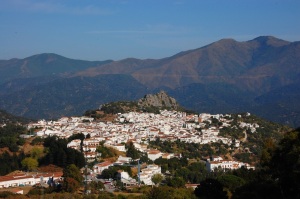
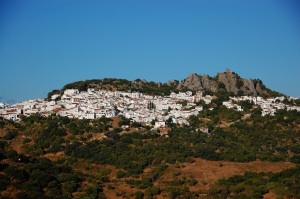
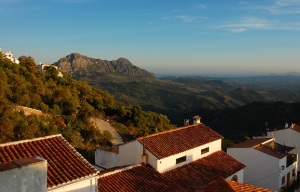
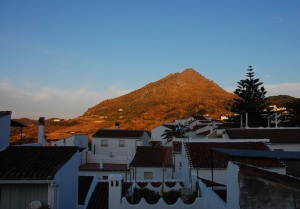
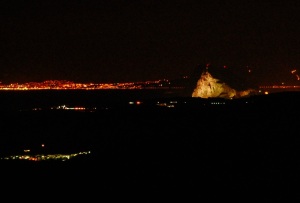
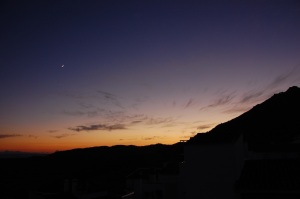
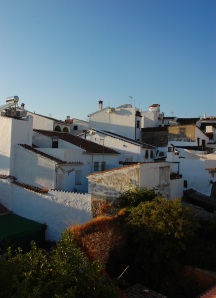
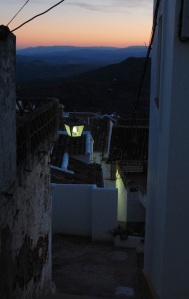
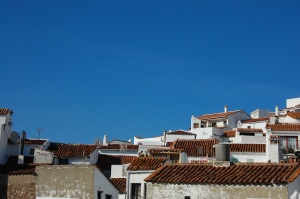
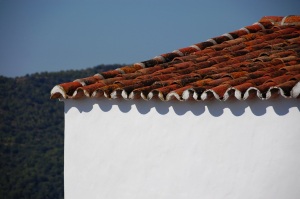
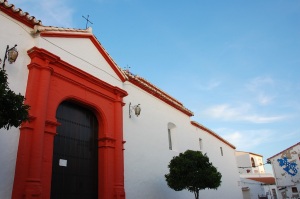
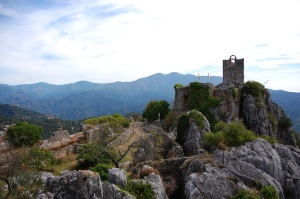
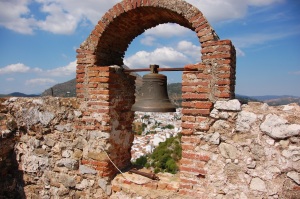
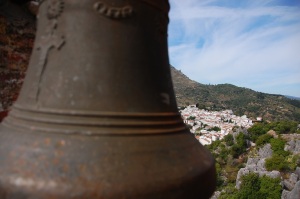
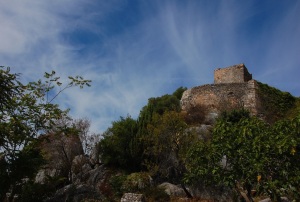
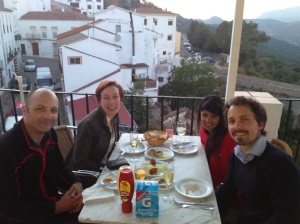
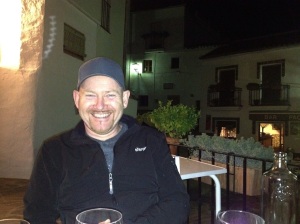
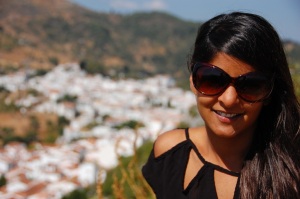
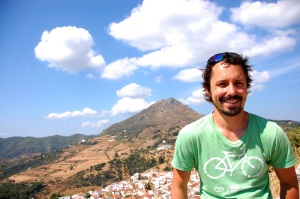

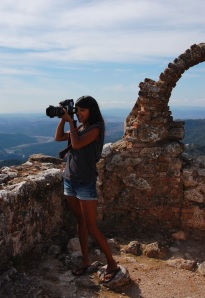
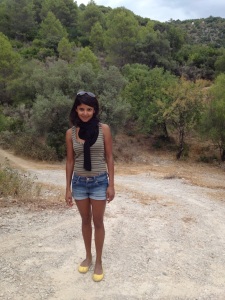
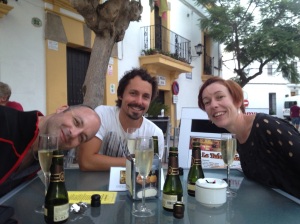
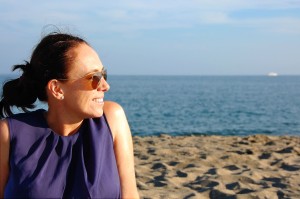
Ahhh excellent Paul!!! Wonderful to hear the insights about your time in Gaucin 🙂
Thanks Cathy!
Paul, This is a great read. You write so well and blend together the history and snippets of present life situations. Lovely to meet some of the characters you have also been able to connect with. You have a real gift and the photos really help it to come to life. What a great month. I’ve just been reading a very good book about one of the Spanish pilgrimages and both pieces of writing make me want to one day go there.
Blessings
Thank you for the kind words Heather. Your book on the pilgrimages sounds very interesting, I would love to hear more about it when I see you next. Love and best wishes, Paul
Makes me yearn to share some of your experiences, and the photos are so alive and exciting.Glad you both got to stay in one place for that time! Bryan
Pingback: Berlin: the best city in the world | EuropaBlog